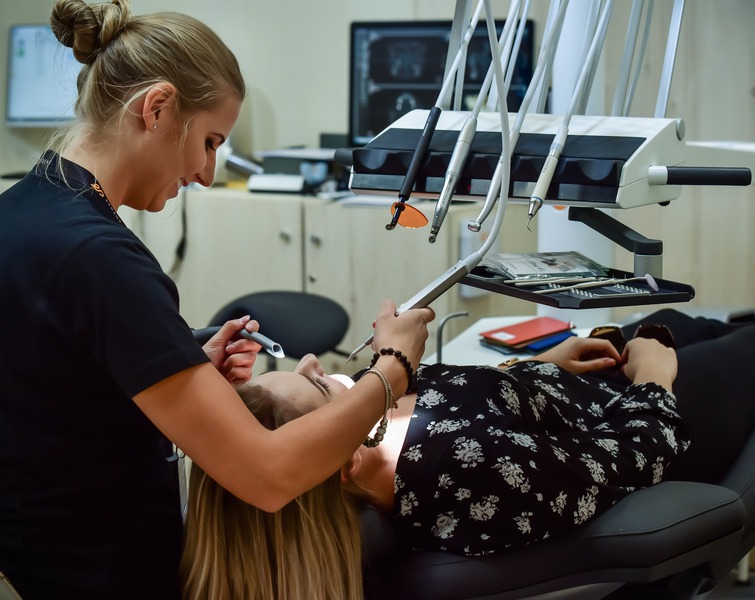Are you thinking about getting a dental implant? It’s a significant step towards restoring that sparkling smile, and it all begins with a dental implant consultation. But what does this consultation actually entail, and how can you prep for it? In this article, you’ll find a walkthrough of the dental implant consultation process, the questions you might want to ask, and what to expect every step of the way.
1. Initial Examination
During your first visit, you can expect a thorough examination. This isn’t just about looking at the gap where your tooth used to be. Your dentist will review your overall oral health to ensure you’re a good candidate for an implant. Here’s a quick rundown of what could be included in this initial evaluation:
-
Medical History Review: You’ll discuss any health issues that might affect the procedure or healing process.
-
Oral Examination: This includes checking the health of your gums, teeth, and jawbone to make sure they can support an implant.
-
Dental X-rays or 3D Imaging: This detailed look beneath the surface helps your dentist assess the condition of your jawbone and the placement of adjacent teeth.
Essentially, an implant is a titanium post that acts as a substitute for the tooth root, capped with a custom crown that looks just like your natural tooth. You can find top-rated dental implants Aurora IL, known for their skilled practitioners and cutting-edge technology, ensuring you get the best possible service and results.
2. Discussing Your Options
Based on the results of your examination, your dentist will talk through the options. Only some people are immediate candidates for an implant, and sometimes other treatments are necessary first like bone grafting if your jawbone needs to be stronger to support an implant. Your dentist will take the time to explain all this and answer any questions you may have about the procedure, recovery, and expected outcomes.
Not every dental issue requires the same approach. That’s where a personalized consultation comes into play. Your dental professional will evaluate your specific needs and recommend the best course of action to give you back your healthy smile. So, if you’ve suffered from tooth loss or damage, restorative dentistry provides the solution – and that often includes personalized restorative dental treatments.
3. Designing Your Smile
Once you’ve been deemed a good candidate, it’s time to get into the exciting stuff – designing your new tooth. You might be surprised by the level of customization involved. From the color and shape to the size and fit, your new tooth is crafted to blend seamlessly with the rest of your smile.
4. Creating the Treatment Plan
After the initial decisions about your implant, your dentist will map out a detailed treatment plan. This personalized schedule will cover everything from the preliminary treatments, like any tooth extractions or bone grafting, to the timeline for installing the implant and placing the crown on top.
5. Tackling Timeline and Costs
An essential part of the consultation will inevitably revolve around the timeframe for completing the dental implant process and the costs involved. Implants can be an investment, and it’s important to understand the full scope of what you’re paying for. Your dentist will help outline the phases of treatment and provide a breakdown of expenses so you can plan accordingly.
-
Phases of Treatment: How long will each part of the process take, from any prerequisite procedures to the final placement of the crown?
-
Costs and Payment Options: A clear understanding of the costs, including what’s covered by insurance and what payment plans are available.
6. Maintaining Your Dental Implant
After implant placement, your dentist will guide you through the care and maintenance needed to ensure it lasts a lifetime. This includes tips on proper brushing and flossing techniques, as well as scheduling regular dental checkups. You’ll also get advice on avoiding certain habits that might compromise the integrity of your implant, such as chewing on hard items or using tobacco products.
7. Preparing for Emergency Dental Scenarios
No one wants to think about dental emergencies, but it’s good to be prepared. Should a complication arise with your implant or if there’s an urgent need for dental care, knowing where to turn can be a huge relief. Having access to emergency dental assistance in Aurora means peace of mind that you’re always close to quality care when you need it most.
Whether it’s an issue with your implant or another urgent dental concern, an emergency dentist can provide the immediate care needed to address pain, prevent further damage, and start any necessary treatments as swiftly as possible.
Questions to Ask During Your Consultation
With all this information up your sleeve, you’re well-equipped for a productive dental implant consultation. But to make the most of your time with the dentist, you might want to ask questions like:
-
How long have you been placing dental implants?
-
Can you show me before and after photos of previous implant cases?
-
What kind of follow-up care will I need?
-
What are the success rates for implants placed in your practice?
-
How do you handle unforeseen complications?
Getting clear answers not only helps you feel more comfortable with the procedure but also ensures you’re well-informed about what to expect.
Final Thoughts
Going for a dental implant can be a life-changing decision. Not only does it enhance your smile, but it also plays a crucial role in your overall dental health. By understanding what’s involved, from the initial exam to mapping out the treatment plan and learning how to maintain your implant, you’re paving the way for a successful and satisfactory outcome. Remember to ask plenty of questions, and choose a dental team that gives you confidence in your care.


